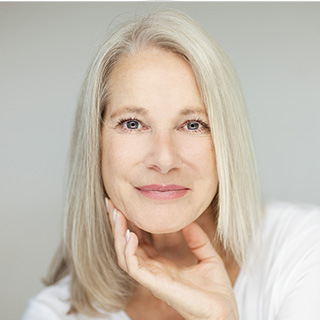Your health is about more than just diet and exercise. It is about every aspect of your being, including your sexuality. Issues with sexual desire can interfere with other aspects of your life. The media tends to focus on issues and solutions surrounding male sexual dysfunction. However, female sexual dysfunction is just as much of an issue and is often overlooked. This does a great disservice to women and to their relationships.
Dr. Lynne Ahn understands that sexual dysfunction issues are extremely personal and can oftentimes be quite complex. That is why she takes a personalized approach when treating patients. She takes time to get to know her patients and helps them get back to where they want to be sexually. Here, Dr. Ahn discusses reasons women lose sexual desire and what they can do about it.
Reasons Women Lose Sexual Desire
Many of the reasons for sexual dysfunction can be traced back to hormonal levels. However, hormones are not the only driver behind sexual desire. Below are some of the top reasons women lose sexual desire.
Medication
Many medications can have an adverse impact on sexual desire. Two of the most common medications that impact sexual desire are hormonal birth control and antidepressants.
Pregnancy
Women’s hormones can fluctuate when they are pregnant and right after having a baby. They can continue to fluctuate while a woman breastfeeds. These fluctuations can impact sexual desire. In addition to hormonal fluctuations, other changes that occur during and following pregnancy (like fatigue) can also impact sexual desire.
Menopause
Hormonal changes during the onset of menopause, combined with vaginal dryness, can contribute to a loss of sex drive. This can be treated with a vaginal cream or suppository.
Mental Health Issues
Our mental health plays an important role in our overall health. Issues with anxiety, depression and self-esteem can all impact sexual desire.
Alcohol and Tobacco Use
Drinking alcohol and using tobacco can impact sexual function and desire. Binge drinking can be especially problematic.
Health Issues
Dealing with health issues is hard. It is understandable that this would impact other aspects of a person’s life, including sexual desire. Additionally, certain medical conditions can contribute to hormonal imbalance which can lead to a loss of sexual desire. Major illness, such as cancer, diabetes, or heart and blood vessel (cardiovascular) disease, can also contribute to sexual dysfunction. An assessment of your medical history may help Dr. Ahn to better understand (and treat) your diminished sexual desire.
What Women Can Do About a Loss of Sexual Desire
A loss of sexual desire can be a deeply personal issue to face. What a woman chooses to do about the loss is a personal choice. One of the best decisions that a person can make is to talk to a doctor who has experience helping patients experiencing sexual dysfunction. Ideally, they would find a physician who takes a holistic approach to treatment. The actual solution will depend on the cause of the sexual dysfunction, which will vary from patient to patient.
Schedule an Appointment
If you are concerned about a loss of sexual desire, you deserve help from an experienced and compassionate physician like Dr. Ahn. Please call (781) 237-1600 to schedule an appointment.




